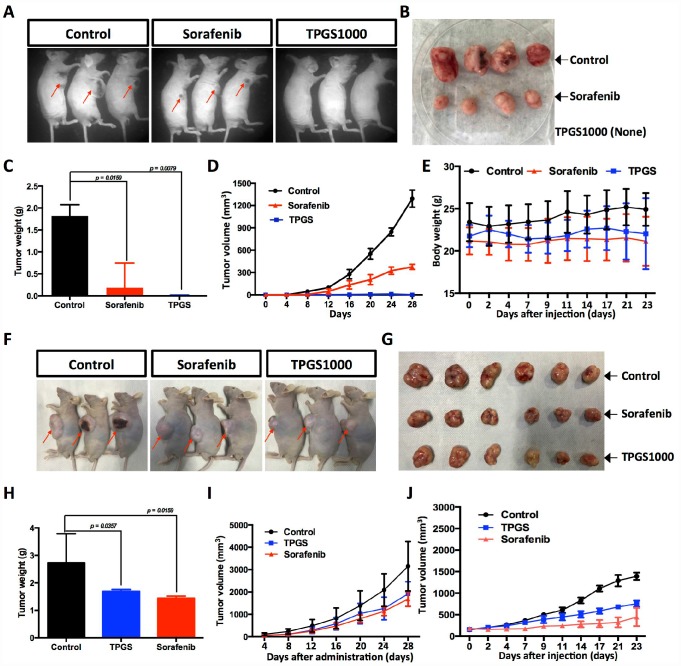Figure 6.
Effects of TPGS treatments and intravenous or oral administration on HCC cell-derived subcutaneous xenograft tumors in nude mice. (A) Tumor-bearing mice were divided into three groups: control, Sorafenib- and TPGS-treated groups. (B) Tumor masses from the control group (implantation with 1×107 untreated HCC cells) and from the Sorafenib group (implanted with 1×107 treated HCC cells). (C) Tumor weights in mice 32 days after injection. (D) Quantitative analyses of tumor progression of (A). The tumor size was determined by measuring the tumor volume every 4 days from day 4 to day 28 after injection. (E) Body weights for TPGS-injected animals did not change significantly compared to vehicle-treated controls. (F) Tumor-bearing mice were randomized to receive treatment with 30 mg/kg of Sorafenib or 300 mg/kg of TPGS or an equal volume of normal saline by oral gavage. (G) Tumor masses from three groups of (F). (H) Tumor weights in mice 32 days after drug administrations. Both the Sorafenib- and TPGS-treated groups demonstrated a significant decrease of tumor weights. (I) Quantitative analyses of tumor progression of (F). (J) Tumor growth curves. Nude mice were administered treatments 2 times via intravenous injection in the tail over an interval of 7 days. The tumor volume was monitored at predetermined time points.

